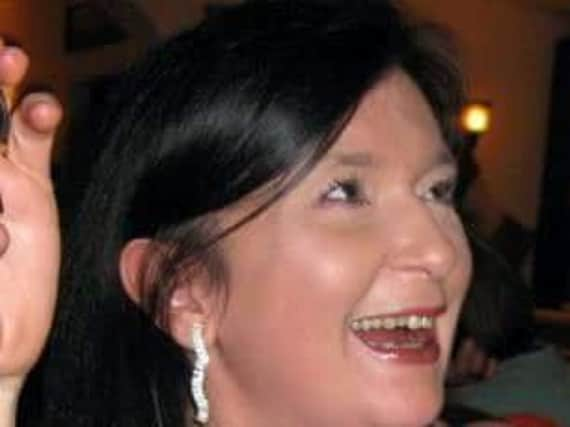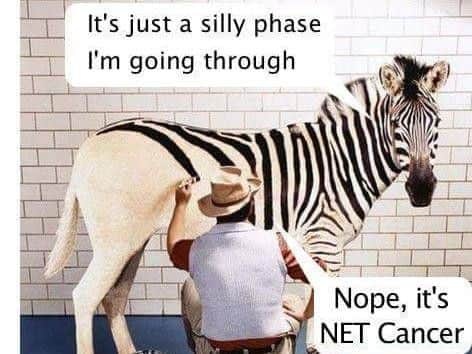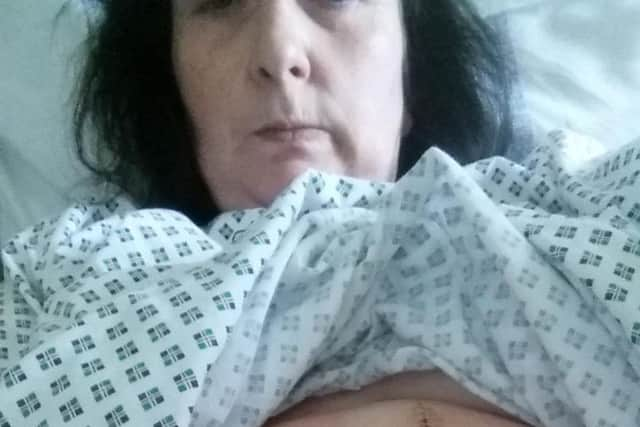Suspected food poisoning saved this mum's life


Rachel, who is in her second year of studying social work at the University of Central Lancashire, is making a good recovery after surgery to remove a neuroendocrine tumour from her intestine.
But had there been any further delays in her diagnosis, she could be telling a different tale.
Advertisement
Hide AdAdvertisement
Hide AdThe 47-year-old didn’t think there was anything wrong when she began to lose a bit of hair.


Even after experiencing palpitations, an ECG revealed no problems.
But after a night in A&E with a severe stomach pain, the true picture of her declining health began to unravel.
Rachel, who lives in Blackburn, recalls: “My mother went through the menopause in her mid 40s and I, like her, seemed to start down this road in my mid 40s too.
Advertisement
Hide AdAdvertisement
Hide Ad“Back in 2012 when I was only 43, I started shedding my hair and had an extremely dry flaky scalp. I did not know what was going on at the time and thought it was stress related.


“I did not realise that this was related to hormone activity in my body and my GP did not seem concerned at the time. My periods then stopped and I knew that I was not pregnant so I went to see my GP again as I was also experiencing mild heart palpitations.
“My GP sent me for an ECG and also a blood test. Thankfully my ECG was fine and my GP explained that the hormone activity in my blood results suggested that I was in menopause. At this point I was only 45 and found this difficult to deal with. I started experiencing horrific mood swings and discussed this with my GP. I was put on HRT and this initially started to help with the mood swings. However they started to get worse so I went back to see my GP and my HRT dose was increased. This really helped and I started to feel like myself again.
“In April 2016 I was rushed into hospital with horrific stomach pain. I thought I had food poisoning. The pain was unbearable.
Advertisement
Hide AdAdvertisement
Hide Ad“I was admitted and my pain was stabilised and I had a CT scan as the doctors looking after me thought that it could possibly be renal stones or gall stones.


“When the doctor came to give me the results of my CT scan, my husband had gone to pick up our son from school.
“The doctor would not give me the results until my husband was with me. At this point I knew that they had found something and I felt very afraid.
“When my husband returned, we were given the news that the CT scan had shown a five inch mass growing around the major blood vessels which supplied my small intestine and my colon.
Advertisement
Hide AdAdvertisement
Hide Ad“I have never felt so scared in my life and my initial thoughts turned towards my children. The team of doctors looking after me explained that they were going to treat this mass aggressively and that they needed to do more tests to identify exactly what this mass was.


“I asked my surgeon if he could do a biopsy, but he explained that it was too dangerous because of where the mass was.
“I had a special blood test which I had to fast for 12 hours before and also 24 hours of my urine was collected. These two tests were to check for hormone activity as neuroendocrine tumours (NET) were suspected. The blood and urine test results helped to confirm the diagnosis.
“My surgeon suspected that I had probably had the NETs for about three or four years as it was a slow growing cancer.
Advertisement
Hide AdAdvertisement
Hide Ad“I got in touch with a neuroendocrine expert who took an interest in my case and guided my team on my care.
“He advised that the mass they had found was in fact secondaries and that my team needed to locate the primary tumour before they made a decision on whether or not they could operate.
“I had to have an octreotide scan which unfortunately did not locate the primary tumour. I then was sent to a different hospital for a PET CT scan which did locate the primary tumour which was in my small intestine.
“My surgery was scheduled for the end of May, but unfortunately the anaesthetist had not looked at my case properly.
Advertisement
Hide AdAdvertisement
Hide Ad“He had not realised that my neuroendocrine tumours were hormone secreting. He had to explain to me two hours before I was due to go to theatre that my operation could not go ahead because I needed a special drug to stabilise my blood pressure during surgery or I would die.
“It was at this point I felt like I was going to have a nervous breakdown. All these weeks in hospital, all these tests leading to a surgery that now could not take place!
“My surgery was then rearranged for the end of June and I went home for a bit of respite.
“I reported to hospital to the critical care department. I was started on octreotide, the drug that was going to help stabilise my blood pressure during surgery. I had my surgery on Monday June 20 and was in theatre for about seven hours.
Advertisement
Hide AdAdvertisement
Hide Ad“Hopefully all of the NETs that were growing around the blood vessels supplying my bowel were removed.
“Unfortunately I lost about 70cm of my colon. The primary tumour in my small intestine was also removed and my gall bladder too. I remained on the octreotide for 48 hours after surgery.
“The care I received in hospital was amazing and I have a renewed respect for just how hard nurses work.
“I had a fantastic surgeon, a fantastic team and an NET expert advising my team from a different hospital. I cannot fault the NHS and I owe them my life.”
Advertisement
Hide AdAdvertisement
Hide AdRachel has spent the last few months recovering from her operation and has been informed that the procedure was successful. She says: “I am getting stronger every day.
“Following my most recent check up, doctors told me the neuroendocrine cancer is a grade one, which means it is slow growing.
“This is really positive news and I do feel very relieved. I feel very thankful. It has been a very painful and difficult road to this point. I feel much stronger in myself and so thankful for my loving and supportive family and friends. I had to re-jig my university course and UCLAN has been really great.
“I am determined to raise awareness on this horrible rare cancer that has changed my life forever. Perhaps my story will help future diagnosis a little quicker than mine.
Advertisement
Hide AdAdvertisement
Hide Ad“I wish I had been diagnosed so much earlier, the signs were there with the hormone activity within my body. I hope my story helps quicker diagnosis in other NET sufferers.
“Around eight people in 100,000 get diagnosed each year, but the scary fact is that it is as common as testicular cancer or melanoma.
“This is the cancer that killed Steve Jobs. Like with me, it is not properly diagnosed and I hope to raise awareness to stop this.”
To follow Rachel’s progress visit http://www.rachelobasi.blogspot.co.ukPart of her awareness campaign is the use of the zebra, which in medical terms, means a rare condition.
Advertisement
Hide AdAdvertisement
Hide AdRachel will be speaking at a musical charity concert at St John’s Minster Church, Preston, on December 9.
Tickets are £6 or two for £10 and can be bought on the door or by e-mailing [email protected] The concert, organised by UCLAN’s netball team, is from 7.30pm until 10pm and includes performances by Bolton band The Cave, as well as a cellist, a guitarist and a dance show.
Money raised will go towards Cancer Research UK and the university netball team.